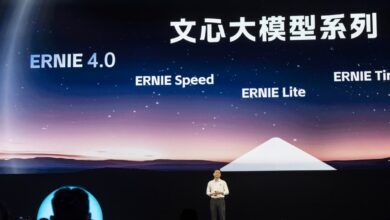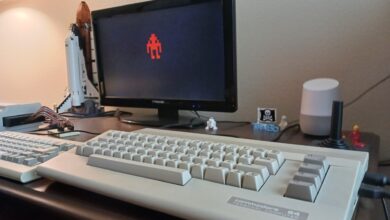Security industry struggles to consolidate against AI threats

Even as companies try to cut costs, information technology security spending continues to rise in the face of increasing threats and the added complexity of artificial intelligence.
“Companies are spending record budget on security — we’re having more breaches than we’ve ever had before, and the world’s gotten a lot more complicated,” said Zeus Kerravala (pictured, right), principal analyst at ZK Research. “I think the timing of AI in this industry is right, because I don’t see a path to simplification without it.”
Kerravala spoke with theCUBE Research’s Dave Vellante (left) and Shelly Kramer (middle) at the RSA Conference, during an exclusive broadcast on theCUBE, SiliconANGLE Media’s livestreaming studio. They discussed how the IT security landscape is evolving and the impact of AI. (* Disclosure below.)

Zeus Kerravala, principal analyst at ZK Research, discusses how the security industry has changed over the past decade in a conversation with theCUBE at RSAC 2024.
An exponential increase in security threats
Customers are struggling to comprehend and consolidate their security tools, according to Vellante. But Kerravala views the security world as operating on a cycle of expansion and consolidation.
“As we move through time and security, we go through these waves where we consolidate certain areas of features that become … fairly standardized,” he said. “Then the VC community and the startups focus on the emerging threats that those things don’t catch … the types of threats continue to evolve exponentially.”
Generative AI will have a huge impact on security, with the potential to protect and threaten customers. Another layer of difficulty is the increasing number of entry points for hackers, from mobile phones to sensors.
“As we connect more things to our infrastructure, we bring in more threats, which creates this wave of new companies,” Kerravala said. “I can’t secure my big corporate headquarters with a cloud-based firewall, but I can’t secure my home workers with a prem-based firewall, so I need to make sure all these things work together. Historically, they haven’t, but … when you look at the world, it’s becoming more dynamic and more distributed.”
One of the advantages of consolidation would be addressing security policies, which can be difficult across multiple vendors. Security would also benefit from a more intuitive user experience, Kerravala believes, similar to the convenience that Apple provides across its devices.
“Where the security industry hasn’t done a great job is while they’ve consolidated functionality, they haven’t actually created that magical experience that actually makes their products more usable,” he said. “There’s an awful lot of people integration work that needs to be done to get these platforms to work.”
Despite AI’s threat to cybersecurity, among other industries, Kerravala’s advice for companies and engineers is to embrace AI rather than shy away from it.
“If you’re not on board with AI, you’re going to be out of a job soon, because there’s another engineer coming up behind you that is on board with it, and they’re going to find a way to do their job better,” he said.
Here’s the complete video interview, part of SiliconANGLE’s and theCUBE Research’s coverage of the RSA Conference:
(* Disclosure: TheCUBE is a paid media partner for the RSA Conference. Neither RSA Conference, the sponsor of theCUBE’s event coverage, nor other sponsors have editorial control over content on theCUBE or SiliconANGLE.)
Photo: SiliconANGLE
Your vote of support is important to us and it helps us keep the content FREE.
One click below supports our mission to provide free, deep, and relevant content.
Join our community on YouTube
Join the community that includes more than 15,000 #CubeAlumni experts, including Amazon.com CEO Andy Jassy, Dell Technologies founder and CEO Michael Dell, Intel CEO Pat Gelsinger, and many more luminaries and experts.
THANK YOU



